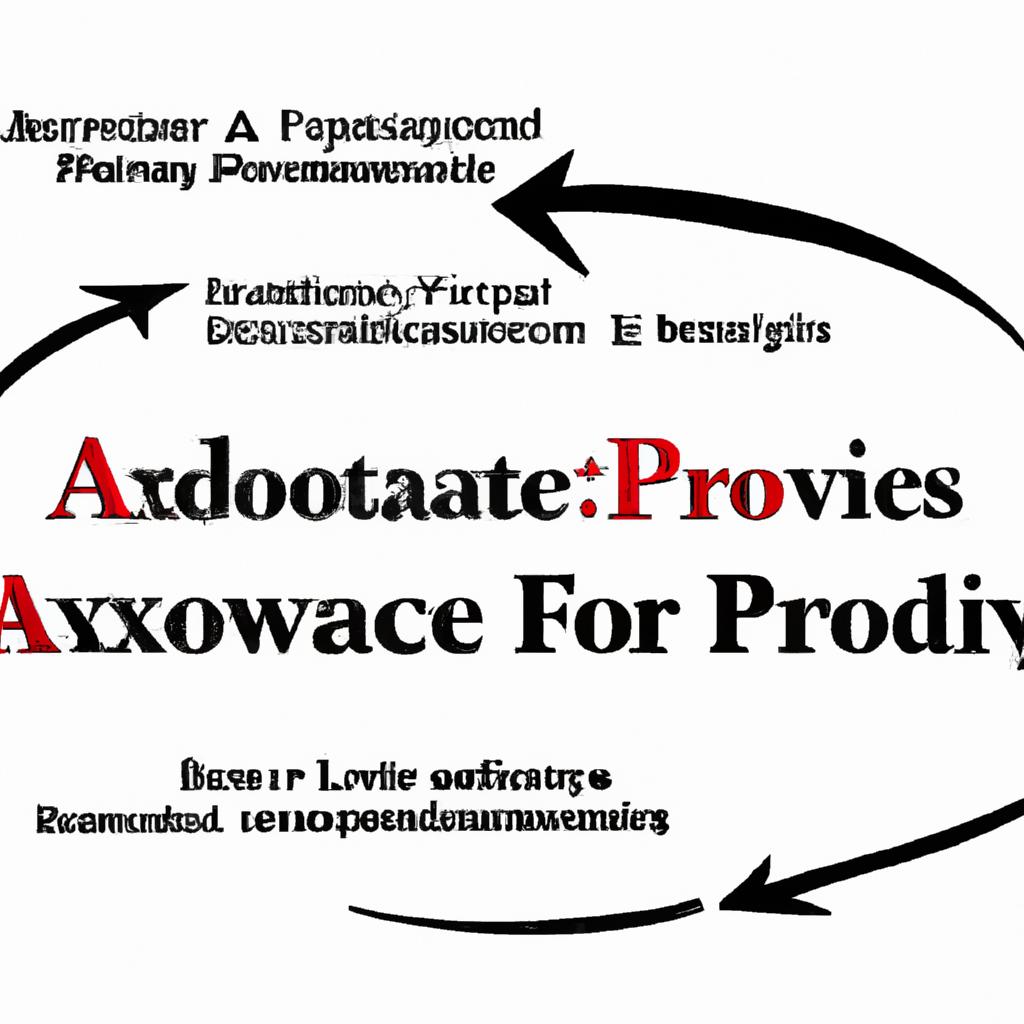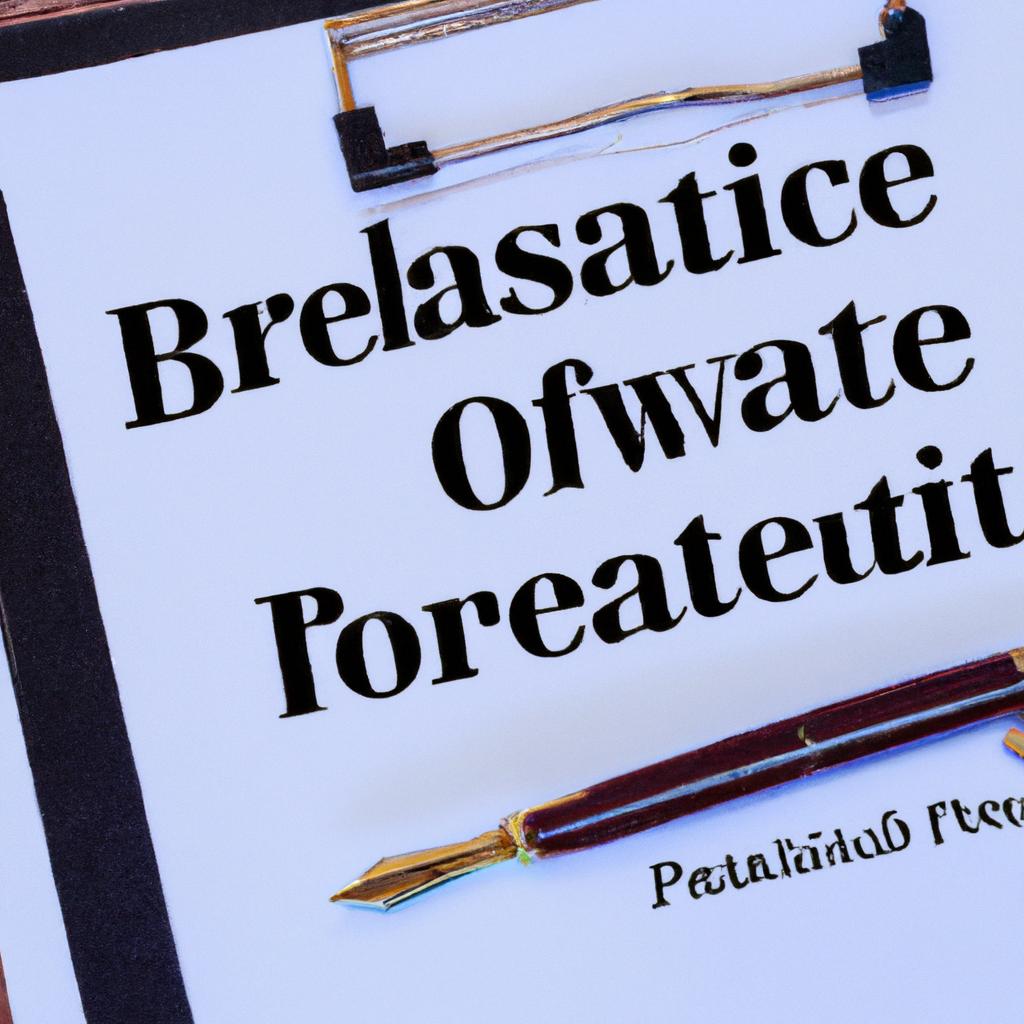At Morgan Legal Group, we understand the intricate legal processes involved in estate planning and probate administration. One crucial aspect of probate is determining which assets are subject to the probate process. In this article, we will explore the types of assets that may be subject to probate and the implications of their inclusion in the estate. As seasoned practitioners in the field of estate law, we aim to provide clarity and guidance on this intricate topic.
Identifying Probate Assets in Estate Planning
When it comes to estate planning, it is crucial to understand which assets are subject to probate. Probate assets are those that will be distributed according to the terms of a deceased person’s will, or if there is no will, according to state law. It is essential for individuals to identify which of their assets will need to go through probate in order to ensure that their wishes are carried out and to streamline the estate administration process.
Common types of assets that are subject to probate include:
- Real estate owned solely by the deceased individual
- Bank accounts held solely in the deceased individual’s name
- Personal property such as jewelry, artwork, and furniture
- Investment accounts held solely by the deceased individual
| Asset Type | Probate Status |
| Real Estate | Subject to Probate |
| Bank Accounts | Subject to Probate |
| Personal Property | Subject to Probate |

Navigating the Complexities of Probate for Real Property
When it comes to , it is important to understand which assets are subject to probate. Real property is one of the assets that typically go through the probate process. This includes any land or buildings owned by the deceased individual. In most cases, real property will need to go through probate unless it is held in a trust or owned jointly with the right of survivorship.
Other assets that are subject to probate include bank accounts in the deceased individual’s name alone, personal possessions, and investments. It is essential to work with an experienced probate attorney to properly navigate the probate process and ensure that all assets are accounted for and distributed according to the deceased individual’s wishes and state laws.

Maximizing Probate Avoidance Strategies for Financial Assets
When it comes to estate planning, understanding which assets are subject to probate is crucial in order to effectively plan for the distribution of your estate. Financial assets are often a significant part of an individual’s estate, and it is important to know how to maximize probate avoidance strategies for these assets.
Financial assets that are subject to probate include:
- Bank Accounts: Any bank accounts held solely in the decedent’s name are typically subject to probate.
- Investment Accounts: Stocks, bonds, and other investment accounts held solely in the decedent’s name may be subject to probate.
- Retirement Accounts: Retirement accounts such as 401(k)s and IRAs that do not have designated beneficiaries are subject to probate.
| Asset Type | Probate Status |
|---|---|
| Bank Accounts | Subject to probate |
| Investment Accounts | Subject to probate |
| Retirement Accounts | Subject to probate |

Strategies for Ensuring Efficient Probate Administration of Business Interests
What Assets are Subject to Probate
When it comes to probate administration of business interests, it is essential to understand which assets are subject to probate. In general, assets that are solely owned by the deceased individual will need to go through the probate process. These assets may include:
- Real Estate: Any properties owned solely by the deceased person.
- Bank Accounts: Individual bank accounts without joint ownership or designated beneficiaries.
- Business Interests: Shares or ownership in a business that is not held jointly or in a trust.
In contrast, assets that are held in a trust, have designated beneficiaries, or are jointly owned with rights of survivorship typically do not need to go through probate. It is crucial for business owners to carefully review their estate plan and asset ownership to ensure a smooth probate administration process for their business interests.
Q&A
Q: What assets are subject to probate?
A: Assets subject to probate typically include real estate, vehicles, bank accounts, stocks, and other investments held solely in the deceased’s name.
Q: Are there any assets that are not subject to probate?
A: Yes, assets such as life insurance policies, retirement accounts with designated beneficiaries, and assets held in a living trust are not subject to probate.
Q: How can one avoid probate for certain assets?
A: To avoid probate for certain assets, individuals can designate beneficiaries on accounts such as retirement plans and life insurance policies, or create a living trust to transfer assets outside of probate.
Q: Why is it important to understand which assets are subject to probate?
A: Understanding which assets are subject to probate can help individuals make informed decisions about estate planning and ensure that their assets are distributed according to their wishes in a timely and efficient manner.
Q: What happens to assets that are subject to probate?
A: Assets subject to probate will be distributed according to the terms of the deceased’s will, or if there is no will, according to state law and court supervision.
Insights and Conclusions
In conclusion, understanding what assets are subject to probate is essential for anyone looking to navigate the complexities of estate planning. By identifying which assets will pass through probate, individuals can take proactive measures to protect their estate and ensure a smooth transfer of assets to their loved ones. Remember, consulting with a legal professional to create a comprehensive estate plan tailored to your specific needs and goals is always recommended. Stay informed, stay prepared, and may your probate process be as seamless as possible.
 As we navigate through life, we accumulate various assets that hold sentimental and financial value. These assets can range from a family home to a collection of vintage cars, and everything in between. But have you ever considered what happens to these assets after you pass away? This is where probate comes into play. Probate is the legal process of distributing a person’s assets after they pass away. However, not all assets are subject to probate. In this article, we will delve into the types of assets that are subject to probate and the implications this can have for your loved ones.
As we navigate through life, we accumulate various assets that hold sentimental and financial value. These assets can range from a family home to a collection of vintage cars, and everything in between. But have you ever considered what happens to these assets after you pass away? This is where probate comes into play. Probate is the legal process of distributing a person’s assets after they pass away. However, not all assets are subject to probate. In this article, we will delve into the types of assets that are subject to probate and the implications this can have for your loved ones.
When a person passes away, their assets are divided into two categories – probate and non-probate assets. Probate assets are those that require court-supervised distribution through a process known as probate. Non-probate assets, on the other hand, are those that can be transferred to beneficiaries without going through this legal process. Let’s take a closer look at the types of assets that fall under each category.
Probate Assets:
1. Solely Owned Property:
Any property that is owned solely by the deceased, such as a house, car, or other real estate, is subject to probate. These assets must go through the probate process before they can be distributed to the beneficiaries.
2. Personal Belongings:
Even personal belongings such as jewelry, furniture, and clothing are considered probate assets if they were solely owned by the deceased. These items must be included in the probate process and can be distributed to beneficiaries through a will or the state’s laws of intestate succession if there is no will in place.
3. Bank Accounts:
Individual bank accounts, including checking, savings, and investment accounts, are subject to probate. If the account holder failed to designate a beneficiary, these assets will need to go through probate before they can be distributed to the rightful heirs.
4. Retirement Accounts:
Retirement accounts such as IRAs and 401(k)s are subject to probate if they do not have a designated beneficiary. These assets can also go through probate if the beneficiary predeceases the account holder, or if there is no language in the will or trust designating a recipient for the account.
5. Business Interests:
If the deceased had ownership interests in a business, those interests are considered probate assets. This includes sole proprietorships, partnerships, and corporation shares that were solely owned by the deceased.
Non-Probate Assets:
1. Jointly Owned Property:
Property that is jointly owned with rights of survivorship will not go through probate as it automatically passes to the surviving owner(s). These assets are commonly seen in married couples or business partners who own property together.
2. Trust Assets:
Assets that have been placed in a living trust are considered non-probate assets. These assets are not subject to probate as they are already designated to be distributed to the named beneficiaries in the trust document.
3. Life Insurance Policies:
Life insurance policies are paid directly to the designated beneficiaries upon the death of the policyholder. These assets do not go through probate, and the beneficiary will receive the proceeds promptly.
4. Payable-On-Death Accounts:
Similar to life insurance policies, payable-on-death designations on bank accounts and investment accounts allow for the transfer of the assets directly to the designated beneficiary without going through probate.
5. Gifts:
Any assets gifted before the death of the giver are not subject to probate. However, gifts made close to the time of death may be subject to scrutiny if it is deemed that the giver made the gift in an effort to avoid probate.
The Implications of Probate:
As mentioned earlier, probate is the legal process of distributing a person’s assets after they pass away. This process can be lengthy, costly, and can also be a public record. As such, many individuals choose to avoid probate by establishing living trusts or designating beneficiaries on their assets. By doing so, their assets can be transferred to the beneficiaries without the need for court intervention or any additional fees.
Additionally, going through probate can also cause delays in asset distribution to the rightful heirs. This can be a significant concern for families who may be relying on these assets for financial support after the passing of a loved one.
In some cases, going through probate can also result in the distribution of assets to individuals whom the deceased may not have intended to receive anything. This is especially important for individuals who are unmarried, have re-married, or have children from a previous marriage. To prevent this from happening, it is crucial to have a valid and updated will in place and to regularly review and update beneficiary designations.
In conclusion, it is essential to understand which assets are subject to probate and take the necessary steps to minimize the impact of this legal process on your loved ones. Creating a comprehensive estate plan with the help of a trusted advisor can ensure that your assets are distributed according to your wishes and avoid the difficulties and costs associated with probate. Remember, proper planning now can save your loved ones from potential complications in the future.

